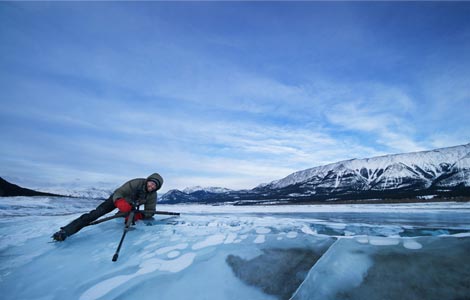Japan and US overreacting
Updated: 2013-11-26 07:22
(China Daily)
|
|||||||||||
While Tokyo continues to play the thief crying "stop the thief", Washington is again barking up the wrong tree over China's announcement of the East China Sea Air Defense Identification Zone.
The Japanese and US hysteria is unnecessary, and potentially dangerous, because it is based on a serious misreading, if not intentional distortion, of Chinese strategic purposes.
Dozens of countries, including Japan and the United States, have their own ADIZs. And the US, as the inventor of such zones, should be well aware of their defensive nature.
If the world's sole superpower, with an unrivalled military, needs multiple ADIZs to fend off perceived threats, why should China not need any? This country's territorial integrity is under constant threat, and its military is generations behind the saber-rattling might of those who see it as a potential rival.
Our Defense Ministry made it clear that the zone does not target any specific country. And no country except Japan and the US have voiced concerns. This is because other countries know it is designed to only ferret out hostile intruders. Japanese Prime Minister Shinzo Abe's accusation that the Chinese ADIZ "could infringe upon the freedom of flight in international airspace" is redundant. The Chinese Defense Ministry has promised it would "not affect the freedom of over-flight in the related airspace". Several Asian airlines contacted by Reuters said their flights would not be impacted, it says.
As was obvious in Saturday's patrol in the ADIZ, the Chinese military has no intention to go beyond what are "international common practices".
The Japanese and US complaints that the ADIZ is a "unilateral" move that changes "the status quo" are inherently false. The US did not consult others when it set up and redrew its ADIZs. Japan never got the nod from China when it expanded its ADIZ, which overlaps Chinese territories and exclusive economic zone. Under what obligation is China supposed to seek Japanese and US consent in a matter of self-defense?
As to changing the status quo, Tokyo and Washington should make clear which status quo they are referring to. The pre-"nationalization" status quo is gone because of Japan's unilateral provocation.
As the Chinese Foreign Ministry stated on Oct 31, 2012, a new status quo has been created as a result of Japan's action.
So, instead of calling on Beijing to "exercise caution and restraint", US Secretary of State John Kerry should try to rein in Abe and his colleagues. The "more collaborative and less confrontational future in the Pacific" he envisages rests more on Japan being sensible and peaceful.
(China Daily 11/26/2013 page8)
Related Stories
Statement on Establishing the East China Sea Air Defense Identification Zone 2013-11-23 11:45
Announcement of the Aircraft Identification Rules for the East China Sea Air Defense Identification Zone of the People's Republic of China 2013-11-23 12:02
Japan must seek East China Sea peace: China 2013-09-27 20:00
China on alert for Japanese fighter jets over East China Sea 2012-12-25 21:29
Today's Top News
Nuclear power 'to fall short of demand'
Caroline Kennedy visits tsunami-struck areas
China to loosen airspace control
China inks regulation to ban official extravagance
9 in police custody after pipeline blasts
Experts doubt smog linked to low birthrate
China, Romania seal railway deals
Cameron visit a chance to boost ties
Hot Topics
Lunar probe , China growth forecasts, Emission rules get tougher, China seen through 'colored lens', International board,
Editor's Picks

|

|

|

|

|

|





